6 Best Electronic Medical Record Software (EMR) for Nigerian Hospital in 2023
The Best EMR Software
Want to jump straight to the answer? The best emr software is ClinicPlus. Read on to find out why.
No matter the size of your hospital/clinic, operating with paperwork can be crazy without electronic medical records (EMR) software, let take, for instance, you have to consult more than 10 patients in a day using paperwork, that can lead to lots of headache and pain for you especially when you spent an hour looking for patient records.
So in this post, I will be showing you the best and most affordable electronic medical record (EMR) software in Nigeria and abroad on why you need EMR software, the advantage of EMR software, and its features. If you know anything about EMR Software, you want to watch this video.
But, why do you need to care for the best electronic medical record software?
Having digital, searchable, and regularly accessible information about each patient can helps medical professionals make the best healthcare decisions for their patients in the shortest amount of time possible.
Protecting this sensitive data is important too, and the best EMR systems keep data safe while making it easily accessible to the people who need it. Proper documentation leads to a more efficient billing system and reduced time spent on paperwork as well.
Here is our collection of the best EMR software currently on the market, as we aim to help you find the right software to manage your hospital/clinic.
The 6 best EMR Software are:
CLINIQUESPLUS
CliniquePlus is a modern & robust Electronic Medical Record Software for any kind of Clinic or Hospital. It manages & automates your clinical and administrative processes in just a click. Whether you need basic or advanced features in your EMR, ClinicPlus got you covered. It is versatile enough to fit the needs of your hospital, no matter your hospital size. See the demo and how to get started below.
Pros
- Detailed scheduling interface
- Versatile EMR for multiple sizes of practices
- Plenty of customizable features
- Excellent prescription tracking capability
- Very competitive pricing
- Highly customizable EMR system
- Front Office Management
- OPD/IPD Management
- Pharmacy/Inventory
Cons
- Requires some time to learn to use it efficiently
AdvancedMD
Just like ClinicPlus, whether you need basic or advanced features in your EMR, AdvancedMD got you covered.
The primary dashboard available through AdvancedMD does require some work to learn to use well, but once you figure this system out, you’ll be able to do some impressive things to help your hospital/clinic operate more efficiently.
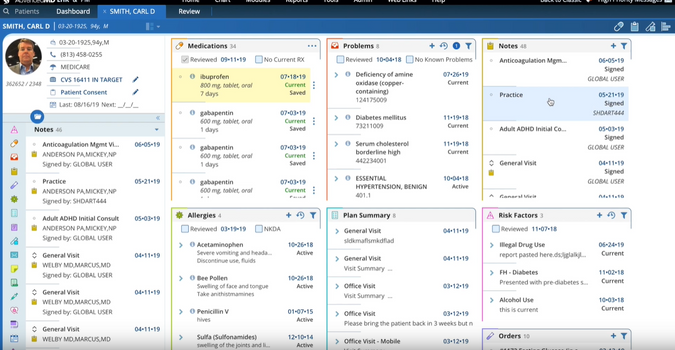
Pros
- Detailed scheduling interface
- Versatile EMR for multiple sizes of practices
- Plenty of customizable features
- Excellent prescription tracking capability
Cons
- Requires some time to learn to use it efficiently
- Price is a little higher than some other
Athena Health
This a web-based electronic medical record(EMR) software for small and average-sized hospitals/clinics with an easy-to-use EMR system,
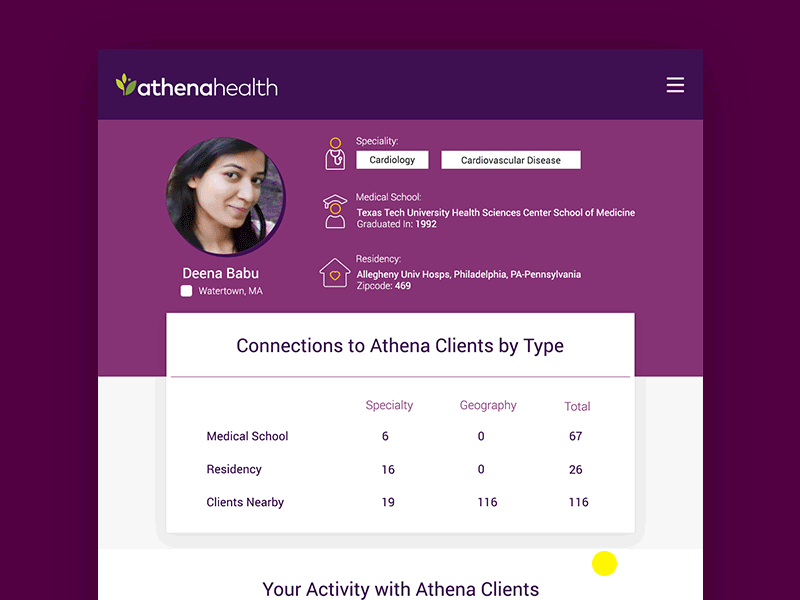
If you don’t have the time or personnel required to do a deep drill down into a complex piece of software. The AthenaHealth EMR fits this need. It’s fully web-based, so it will work for the practice where personnel uses a variety of types of input devices.
Pros
- Web-based EMR software compatible with various kinds of devices
- Good customer service
- Extremely easy to learn to use
- Scheduling features are easy to sort and customize
Cons
- Not recommended for large-sized hospital/clinic
- Because it’s web-based, your data may not be secured
CareCloud
The CareCloud is also a web-based electronic medical records software that gives you the ability to determine how the patient flows through your hospital/clinic. This helps spot potential issues, making your processes more efficient in the process.
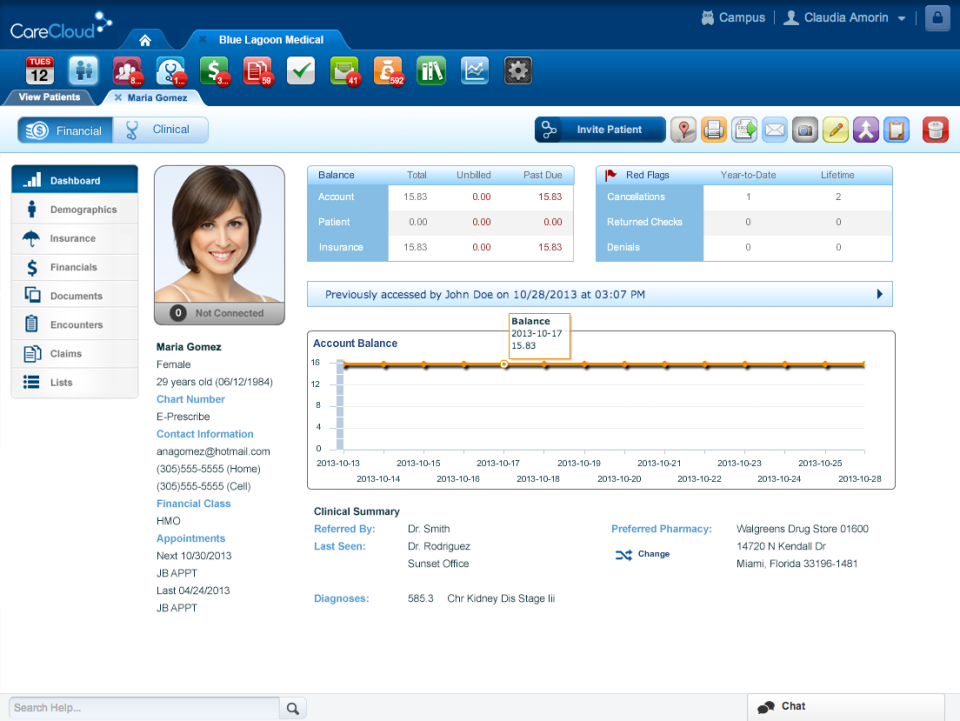
The interface is highly adaptable too. That’s perfect for the ever-changing world of laws and regulations.
Pros
- Strong at tracking patient flow
- Very competitive pricing
- The up-to-date interface is easy to use
- Regularly tweaked to match new healthcare regulations
Cons
- Not recommended for large-sized hospital/clinic
Greenway Health Intergy
Greenway Health’s Intergy EMR software is a highly customizable system. which makes it perfect for large medical practices that handle a range of cases and patients.
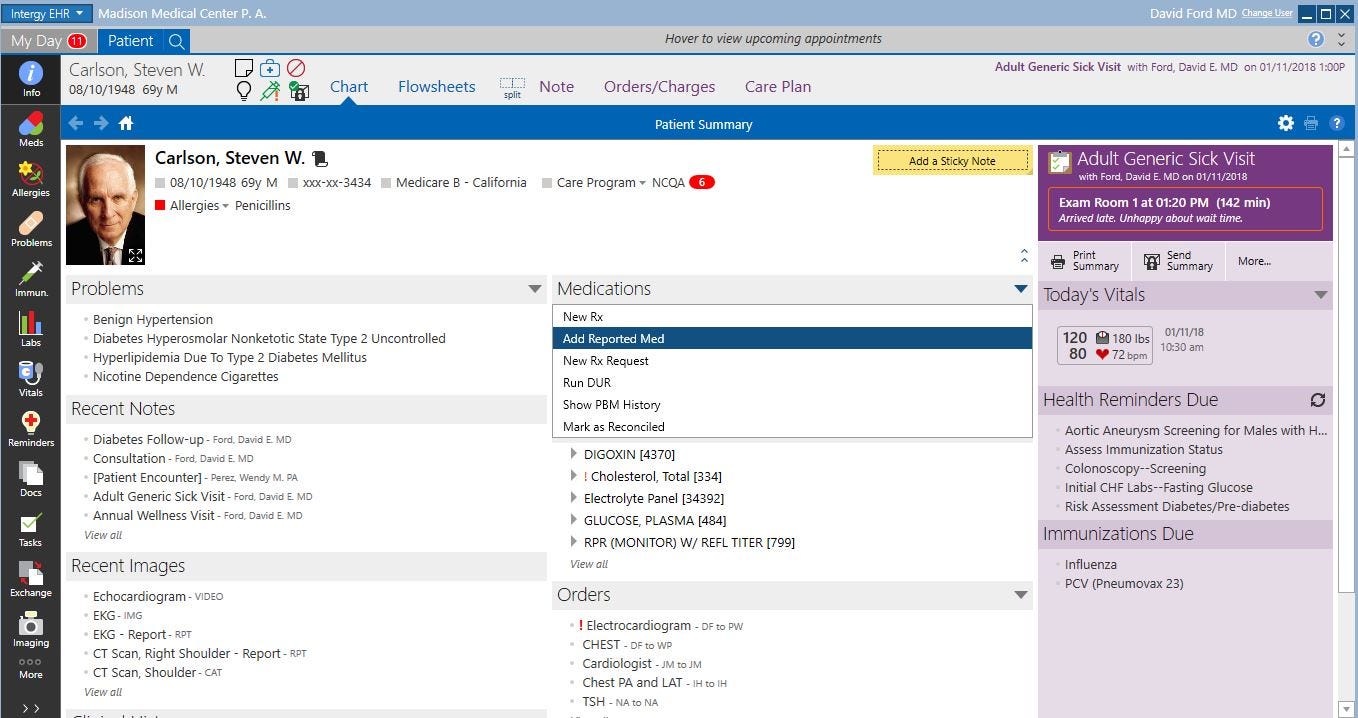
It may take you a while to figure out all of the different aspects of the software, but it’s definitely worth the time spent.
Pros
- Highly customizable EMR system
- Nice collection of shortcuts to streamline work
- Outstanding customer service and training options
- Reasonable pricing tiers
Cons
- It Will take some time to learn all of the custom options
NextGen Healthcare
NextGen is recommended for average and smaller-sized hospitals/clinics.
NextGen EMR software is extremely easy to use, you don’t need a tech staff for training and other services, the NextGen customer service and training capabilities are very active.
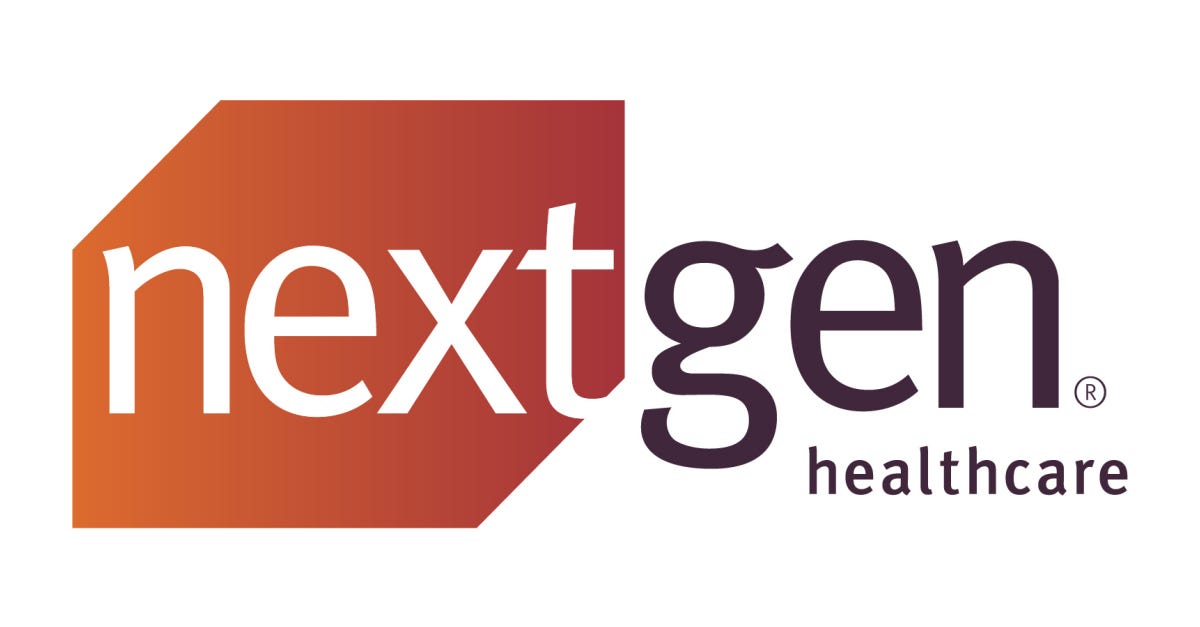
NextGen EMR is also very customizable. You’ll be able to customize their service to your hospital/clinic’s exact needs and specifications.
Pros
- The system is easy to start using
- Offers multiple customization options
- Excellent customer service and training
- Offers low priced tiers
Cons
- Not powerful enough for large practices
How to Choose The Best EMR System For Your Hospital/Clinic
Finding the best electronic medical records (EMR) software for your hospital/clinic becomes easier when you focus on the specific needs of your practice. Try to figure out the areas of your hospital that need the most help, and focus on an EMR system that shines in those areas.
Here are 10 of the measures we estimated when creating our list of the best EMR systems.
Automatic Reminders
The biggest part of managing a patient’s care is maintaining a regular schedule of appointments. With some EMR systems, you can set up an automatic reminder system that alerts the patient about upcoming appointments. The EMR system could send a text message, make an automated call, or send an email to the patient, depending on the patient’s preference.
Automatic reminders will save time for the staff at the hospital/clinic, freeing them up for other tasks. These reminders also reduce the number of appointments that patients forget about and miss, which makes your hospital more productive.
Sending Prescriptions
In some of the powerful EMR systems like Cliniqueplus, you will have the option of sending patient prescription drug orders electronically to the pharmacy, using an e-prescription system.
Sending prescriptions electronically is secure and effective, ensuring that the order for controlled substances travels only to the patient’s pharmacy of choice, reducing the chance of the patient losing a handwritten prescription.
With an e-prescription, you can also reduce the chance of an error at the pharmacy because of unreadable handwriting on the part of a doctor.
Scanning Documents
In most of the EMR software listed about like AdvancedMD & CliniquesPlus, there is an option for document scanning, you will be able to match whatever needs your billing system requires for supporting documentation for cases.
Preferably submitting these documents via fax, printout, or email, you can also digitize them and add them to the patient’s record.
Systems Integration
If your EMR system can integrate with multiple systems already in use at your practice, this streamlines record keeping.
This feature is especially important for meshing the EMR system with the billing system you have in place, for example. Whether your practice sends its billing information to an outside service or does billing in-house, having integration between the EMR system and the billing system saves quite a bit of time and reduces coding errors.
Should your practice have an affiliation with a larger network, such as a hospital, integrating your EMR with the hospital’s system simplifies the patient care process. The EMR vendor can help you figure out how its system may be able to integrate with other systems you already have in place.
Task Reminders
Every medical practice has hundreds, if not thousands, of mundane tasks to perform daily. Whether you’re awaiting results from tests sent to an off-site lab or you need reminders to check with other colleagues about a patient’s status, certain EMR software makes this process far easier than others.
With timestamp deadlines attached to the various reminders, a doctor can be certain to have all of the required tasks finished regarding a certain patient’s case before it’s time for the patient’s appointment. With the tasks finished ahead of time, the doctor will not waste time searching for information or making calls while the patient sits idle in the consultation room.
Tracking Patient Progress
Something that you may not think about when comparing EMR software is the way they can track patients flow.
For example, you don’t want patients occupying a consultation room waiting for a certain doctor, when that doctor cannot see the patient for at least 45 minutes, leaving other patients stuck in the consultation room, rather than being in a consultation room, receiving treatment from other doctors.
Summary: Finding the Best EMR Software
You might find some vendors use the terms EMR and EHR (electronic health records) interchangeably, they technically have a few differences that you should understand.
Both EMR and EHR are digital records of patient health records. An EMR is best explained as a digital version of a patient’s chart. By variation, an EHR contains the patient’s records from multiple doctors and gives more insight into a patient’s health. You can read more about the comparison here.
The EMR software simplifies the ability of the hospital/clinic to care for the patient, helping to send out reminders to the patient for upcoming tests or health screenings. Finding just the right EMR system will produce significant benefits for patients and for those working in your hospital, making the process of caring for patients more smooth and more successful in the long run.


